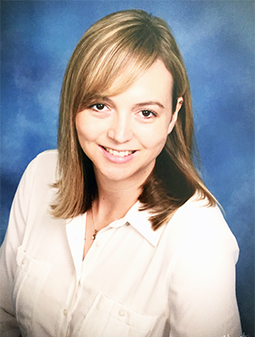Latest News Archive
Please select Category, Year, and then Month to display items
02 January 2025
|
Story Gerda-Marie van Rooyen
|
Photo Supplied
 Leading the research in South Africa is Prof Linus Franke from the Department of Soil, Crop and Climate Sciences.
Leading the research in South Africa is Prof Linus Franke from the Department of Soil, Crop and Climate Sciences.
Scientists are actively pursuing the successful breeding of diploid hybrid potatoes from inbred lines. This is expected to revolutionise potato breeding as it holds the key to rapid genetic progress. It will introduce new varieties for commercialisation through seed. Currently, existing potato variants have a gene that renders self-pollinated seeds infertile.
Prof Linus Franke, an academic in the Department of Soil, Crop and Climate Sciences at the UFS, is leading the research in South Africa. “This technology allows the production of genetically uniform potato seed that is easy to transport and largely disease-free.” He says this differs from conventional breeding whereby only vegetative propagation is possible due to tetraploid varieties in potatoes. It also risks carrying pests and diseases from one generation to the next – leading to the accumulation of pests and diseases with each round of multiplication.
Seed innovation
Prof Franke explains that Solynta BV, a seed company based in the Netherlands that produces potato varieties that can be grown from seed, has included South Africa in their research efforts because it is one of Africa’s largest producers and exporters. Through his academic relationship with Wageningen University and Research, a Dutch institution renowned for its agricultural endeavours and food production, the UFS became involved in researching hybrid potatoes grown from seed.
Diploid seeds containing two sets of chromosomes allow easier gene manipulation to increase predictability and speedier genetic progress. The breeding approach enables the incorporation of tolerance to pests, diseases, abiotic stresses (cold, heat, drought) and other desired genetic traits.
Although Prof Franke is optimistic about this research, he is not blind to disadvantages. “Potato seeds are tiny and have little energy reserves, making it harder to grow potatoes from seed than from tubers.” He says potatoes from seed will take longer to cultivate than tubers, as farmers need to grow plantlets from seeds first, adding six weeks to the growing period. “It is possible that commercial farmers can grow potatoes directly from seed. Alternatively, perhaps more likely, specialised growers will produce tubers of potatoes from seed; these tubers are then sold as seed tubers to other potato farmers, who then continue their normal practices of producing potatoes for the market from tubers.”
Financial benefits
Prof Franke says farmers have reason to get excited. “Seed potatoes will reduce input costs, as varieties with enhanced tolerance to pests and diseases require less pesticides. Planting one hectare of potatoes requires three to four tonnes of potato tubers, but only one 25 g packet of potato seeds.” Since potatoes are a more valuable commodity than maize, this technology might also increase farmers’ income potential.
Seasoned international pianist appointed at the OSM
2016-02-05

Dr Grethe Nöthling |
The Odeion School of Music is delighted to welcome Dr Grethe Nöthling as a new member of its dynamic performance faculty.
Dr Nöthling has been appointed as principal piano lecturer. She has won several national music competitions, and is the recipient of numerous awards and bursaries, including the University of South Africa overseas scholarship for teachers in 2003.
Musician and pedagogue par excellence
From 1989 to 2005, Dr Nöthling performed as soloist with all major South African Symphony Orchestras. She obtained a Bachelor of Music Degree (magna summa cum laude), specialising in Performance from the University of Pretoria under the tutelage of Professors Ella Fourie and Joseph Stanford.
She furthered her studies in the United States of America at the Cleveland Institute of Music where she received a Master’s of Music Degree in 2008 under the guidance of Daniel Shapiro and Paul Schenly.
Dr Nöthling obtained a Doctorate of Musical Arts Degree (2014) from the University of Iowa (UI) in the USA under Professor Uriel Tsachor. During her studies at the U of I, she was awarded a teaching assistantship, and performed with the university’s New Music Ensemble. During a ten-year residency in the USA, she has performed extensively as both soloist and chamber musician.
Inspiration for aspiring musicians
“It is my hope to be an inspiration for young and upcoming musicians both as pedagogue and performing artist. In order to consider the unique gifts and challenges of every individual student, I am of the opinion that is imperative to be very flexible and adjustable from a methodological and musical perspective,” said Dr Nöthling.